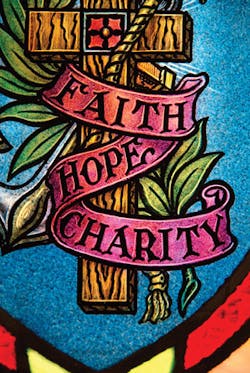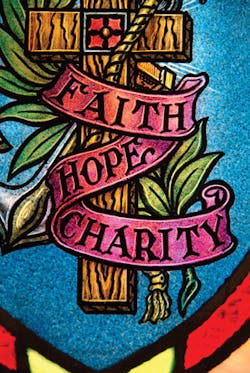Faith-based initiatives
BY CHRISTINE NATHE, RDH, MS
Often in this column, discussion has focused on collaboration and the importance of aligning dental professionals with community entities and significant stakeholders. Potential partners for dental hygienists interested in promoting dental health initiatives are within their communities and are possibly part of their family-faith-based organizations.
What is important to note before starting this discussion is that, with the current fiscal outlook, finding funding for dental health is imperative. Although we continue to look for adequate models of dental care delivery-including increasing dental care providers' education and the accompanying infrastructure-if funding sources do not improve, no models will show success.
So it is important to look for partnerships that include possible new streams of funding for potential dental care delivery models and clinics. Historically, health care and religion have been intertwined. The faith-based sector has played a prominent role in education, social services (e.g., job training and income assistance), rehabilitation of offenders, environmental advocacy, community development, and notably, health care.1
The relationship between faith-based initiatives and the federal government was solidified under President Bill Clinton as part of the 1996 Welfare Reform legislation. It had a provision for charities to allow religious organizations to provide federally funded services from specially named programs the same way as any other nongovernmental provider. President Bush expanded it to provide assistance to needy individuals and families in the most efficient manner. President Obama slightly changed the offices created by President Bush by adding neighborhood coalitions, so now the office is called the Office of Faith-based and Neighborhood Partnerships.1
Interestingly, faith-based initiatives may seem to be a partisan endeavor, but they have actually been developed and endorsed by a wide variety of political figures and parties. This is important to note because faith-based institutions and organizations represent a longstanding yet underused resource for health promotion and disease prevention.2
Partnerships with faith-based organizations are a potential support system dental hygienists can look into when developing programs. Many faith-based organizations strive to help those in need, just like dental hygienists do when they develop their programs. And, many dental hygienists are part of faith-based communities. Collaborating with other stakeholders who have similar goals is an excellent way to improve clinics and increase access for those in need. RDH
Author's note: My next two columns will focus on faith-based initiatives and dental hygienist opportunities with these initiatives.
References
1. Levin J, Hein J. A Faith-Based Prescription for the Surgeon General: Challenges and Recommendations. J Relig Health (2012) 51:57-71.
2. Levin J. Faith-based initiatives in health promotion: history, challenges, and current partnerships. Am J Health Promot. (2014) Jan-Feb;28(3):139-41.
CHRISTINE NATHE, RDH, MS, is director at the University of New Mexico, Division of Dental Hygiene, in Albuquerque, N.M. She is also the author of "Dental Public Health Research" (www.pearsonhighered.com/educator), which is in its third edition with Pearson. She can be reached at [email protected] or (505) 272-8147.

